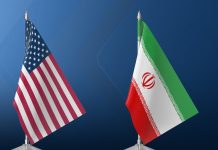On March 31, during his recent visit to China, Neil Bush, founder and Chair of the George H.W. Bush Foundation for U.S.-China Relations, spoke with Beijing Review reporter Tao Xing and shared his views on bilateral relations as well as China’s green development. Edited excerpts from the interview follow:
Beijing Review: Since your first trip to China in 1975, you reportedly have visited over 140 times and seen more than 40 Chinese cities. What keeps you coming back?
Neil Bush: My first trip to China was in 1975, when my father was representing the United States as chief liaison officer in China. He was commonly known as the “bicycling ambassador” because our family would ride our bikes in a sea of bikers from the ambassador’s residence to Tiananmen Square or other destinations in Beijing.
It was such an interesting time in China’s history and we were warmly received. But China was very poor back in 1975. I had an opportunity to come back in the early 1980s after the country opened its doors and was fascinated to see the changes that Deng Xiaoping led into the country, and how the changes were affecting society.
And so I would come back from time to time in the 1980s and 90s and saw this tremendous progress. Then it’s been accelerated over the past 23 years. So I’ve seen China’s rise; and it’s been a pretty remarkable thing in history for me to be able to witness China’s peaceful rise.
I come back for two reasons. One, I have business interests and I believe that establishing connections between American and Chinese businesses helps develop economic opportunity.
And two, I believe, as my father did, that the U.S.-China relationship is the most important bilateral relationship in the world. When I come back here, I try to spread goodwill on behalf of the American people. I try to encourage collaboration in areas where we need to collaborate. So I’m wearing two hats when I come to China and I’ve enjoyed it every time.
The China-U.S. relationship is clearly in a very different place today than it was a few years ago. What is your take on where the China-U.S. relationship is headed now?
Graham Allison, a professor at Harvard University who wrote the book Destined for War: Can America and China Escape Thucydides’ Trap?, studied 16 cases over the past 500 or 600 years, where a rising power was challenging, or was perceived to be challenging, an established power. In 12 of the 16 cases, it turned out there was a hard war, a hot war.
Allison’s point is that we need to learn from history. We need to avoid jumping into the “Thucydides’ trap.” which describes some inevitability to war as a rising power challenges an established power.
A lot of the behaviors we see from history, from the established power—so I’m talking about the United States now—are reflected in historical cases where we ended up in war because there were misjudgments about the intentions of the rising power or misunderstandings of basic factual scenarios related to the rising power.
We see a lot of mistruth in the United States right now about China, misunderstandings about China. It scares me that we are kind of inching toward conflict. The fact that two deeply connected countries, with many shared interests, might end up moving closer to conflict is really sad to me.
In my dad’s world, he always believed that being present with other people, whether it’s government to government or people to people or business to business, helps build better understanding, build mutual respect and ultimately can lead to collaboration.
I would urge both governments to be very open to exchanging delegations [for communication]. They should be sharing and meeting and learning from one another to lower tensions and develop a more [mutually] respectful relationship.
It’s in the interest of both countries that we cooperate and one of the common grounds that we find is tackling climate change. However, China has often been criticized as “a major source of pollution.” What do you make of this criticism?
First of all, I think it’s a little unfair to keep a lot of blame on China for pollution.
America went through an industrial revolution back at the turn of the 20th century. And we caused enormous damage to our environment at the time, polluting the waters, polluting the air.
But our industrial complex had no environmental standards at the time. And luckily, the Earth is pretty resilient. And now we have beautiful water in the Boston harbor, and the air is much cleaner and fresher because we have righted that wrong.
China is going through its industrial revolution in a world where there’s an intense pressure to reduce carbon emissions. It’s a little unfair to be saying that China is such an abuser when, in fact, China is leading the way in carbon capture, carbon reduction, renewable energy deployment and all those kinds of things.
One thing that I’m very impressed with is how the Chinese Government here has set the goals of carbon peaking before 2030 and carbon neutrality before 2060. For a country of China’s size in manufacturing scale and car use, etc., that’s a highly ambitious goal.
I’ve met up with many Chinese officials at different levels and all of them have talked about what they’re doing in terms of meeting the “KPIs” (Key Performance Indicators or measurable and quantifiable metrics used to track progress toward a specific goal or objective) for air quality, for emissions and for what they’re doing with green energy and its deployment in their communities.
There’s a consensus that’s developed from the top and then pushed down into the system. And it’s leading to remarkable changes. When China sets goals, whether it’s GDP growth or better air, the country tends to meet those goals. It’s an impressive system in that way.
What do you think China’s economic development will look like in the coming years?
I’m very confident that China’s growth will continue. And I don’t think there’s anything anyone could do—if there is a motivation to do so—that will thwart China’s growth.
Allison’s book did a very good job at talking about the inevitability of China’s rise.
Just look at the basic information of all the Ph.D. students, the engineers, the technical folks, the young people graduating with amazing degrees and getting experiences that can be applied back in China.
Trying to decouple [America’s economy from China’s], which is a crazy notion, makes no sense. In fact, the opposite of decoupling is happening. There’s more direct investment now than before. There’s more bilateral trade now than before.
But if you try to decouple, China has the ability to be self-sufficient in many areas.
China does have its domestic challenges. We, in the United States, also have tremendous domestic challenges. I hope our country can figure out how to address its own challenges.
In the meantime, while China addresses its challenges, the country’s economy will continue to grow and flourish. No doubt about it. –The Daily Mail-Beijing Review news exhcange item



